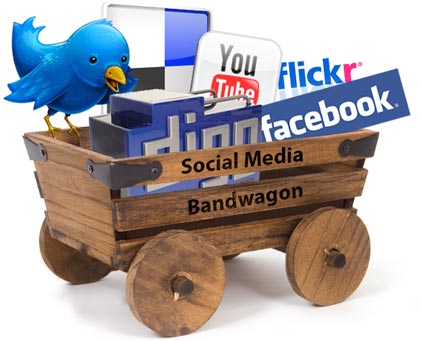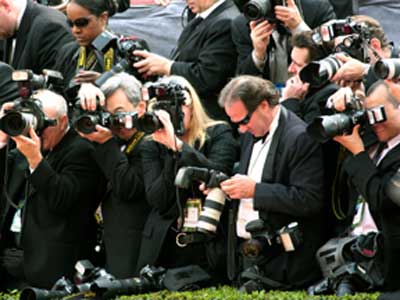Oh you’re in communications…so what do you do exactly?
The one and only reason I wish I were not in the field of Communications is because it’s not one of those one-word answer job descriptions like doctor, lawyer, accountant.
The conversations tend to go something like this:
Inquirer: “So what do you do?”
Me: “I work in communications,” I said and then brace myself for the next never-fail question.
Inquirer: “Soooo what does that mean exactly? Do you like communicate with people.”
What I want to say: Ummm no. Communications does not mean that I talk to people for a living. Every job involves communicating.
What I actually say: “Communications involves a lot of things. Communicating with different people is part of it but I work on websites, write news stories, take press inquiries, produce brochures and stuff….”
Communications is a hard job to explain and every company or organization has different tasks assigned to its communications person or team. Places that have a whole communications team tend to have people who are more specialized in one area such as website content management, or news writing, or media management, or print production. But organizations that don’t have the budget for a whole team will hire a “Communications Officer”, a “Communications Coordinator,” or a “Communications Assistant” who will do everything that is thrown at them.
So if you’ve ever found yourself wondering “what is communications exactly” or if you’ve been considering a career in the field, this post is for you!
Jobs that I do in my current communications role and have done in past communications positions include:
 Print production
Print production
This is one of my favourite communication jobs. Basically the person is a Project Manager from requesting quotes from design companies, managing the writer(s), editor(s), designer, manager (boss who signs off), and the printer. The Production Editor takes an unformatted unedited Word Document and leads it through the transformation into a beautiful glossy brochure, booklet, magazine, report, or book.
Being an organized person and a task manager, I loved the challenge of keeping everyone on schedule, which is very important in print production. As materials are usually being prepared for a campaign or event, there is often a hard, unmoving deadline. I also get to use my proofreading skills, eye for detail and creativity to change things and move things around to create the most attractive professional product possible.
Graphic Design

Depending on where a communications professional’s skills are at, graphic design might come into play. For example, working for non-profit organizations and government-funded institutions, there isn’t usually a large budget to pay the professional designers to design smaller things like posters.
Being a creative person with little formal design training (i.e. no format art classes, only software training), I experimented and taught myself how to design items such as three-fold brochures, event programs, and posters. Doing this “in-house” as the communication folk say, saves a lot of money because it is done by a salaried staff member rather than contracted to a external professional. Oh and when the budget permits, the communications staff manages contracted employees.
Writing/editing/proofreading
Although each of these are VERY different roles, I group these all into one category because they all fall under dealing with text. Depending again on where the communications professional is working, they will do one or all of these. All the communications positions I have had involve a lot of writing, including news stories for the website and e-newsletters, marketing copy, and website content. I’ve also done a lot of editing for text written by non-native English speakers and for fact-checking.
Proofreading is a given. There no single communication that should be made public, even if it’s just an email, that has not first been proofread. Proofreading is actually one of the single most important roles of a communications professional because nothing makes a company or organization look more unprofessional than preventable errors.
Website management
I will argue time and time again that website content management is a specialized skill. There are many content management systems (CMS) out there that are user friendly and people can learn quite easily. However, it takes a true Web Master to know the in’s and out’s of a certain system or multiple systems at that. Making sure that website content is user-friendly, SEO-friendly, and even formatted correctly takes some practice and skill and a lot of patience because CMS’s definitely go through periods where they don’t cooperate and cause inconveniences.
There are also times when businesses want to re-design their websites and/or move to a different CMS. An experienced communications professional can manage this project smoothly. A web editor may have a very hard time communicating with the management team, the computer programers, and the designers. Get an experienced professional to manage this huge project!
On multiple job postings, I’ve seen: experience with a certain CMS or HTML knowledge is an asset. If you’re looking for a website manager or editor, they need to have experience with one or more CMS, but if they don’t know how to use the particular system used by your company/organization, an experienced website manager/editor can quickly learn. Someone who knows your CMS but has little website management experience may not be the best choice. HTML knowledge is an asset. Content management systems nowadays are very user friendly and don’t require HTML, but having basic knowledge will be very helpful for having a handful of “tricks”.
Social media

I would advise businesses to stay away from “social media experts”. Based on personal experience many regular joe’s call themselves “social media experts” because they have accounts on all platforms and know how to use them. Sure they may have expertise in how to set up an account and how to post on them. However, “social media experts” are not experts in communications.
Communications experts know not only how to use social media, but will determine which social media platforms are best suited for the company or organizations’ goals, rather than jumping on all of the platforms, and will know what content to post on these networks and who to target.
I’ve seen many companies and business flock to Twitter and Facebook because they are two or the most widely used networks, but they may not fit with their communications or marketing goals. A communications professional allows businesses to work smarter not harder.
Marketing
Communications professionals will sometimes be involved with marketing campaigns. For example, they will ensure consistent branding, help write marketing copy, and have a good idea of what will appeal to the targeted audience(s).
Communications professionals may not have the skills for “sales” as professional marketers do, but the communicators can definitely help marketers sell through their valuable understanding of the power of language, communication channels, and how to the company/organization’s target audiences.
In my current position, I also do a lot of in-person/verbal marketing for my department because opportunities present themselves this way. It’s not technically part of my job, but I utilize my position as a communicator to market wherever I can. I compare this type of communicating to “ambassadorship”.
Press/Media management

Like marketing, a communications professional can be involved in press or media management depending on where they are working. I think dealing with press inquiries, pitching to the press, writing press releases, and collecting press cuttings are all specific skills often best suited for trained journalists. I think having a separate person specialized in marketing and another in press management are important. However, in businesses that cannot afford to have one person for each of these roles, the duties often fall to the communications person.
Event planning
Event planning involves communications by default. There are invitations to be written, designed, and sent out. Advertising through the website and any other channels, such as posters.
Sometimes, again in places where a whole team or even one specialized person in event planning is not feasible, a communications person will do this job. Event planning requires a more unique skill-set and is better left to a trained or experienced event planner. I compare it to project management as well because you have to organize multiple parties and keep everyone within the deadline.
In Summary
Communications is a multi-facted dynamic position and each company or organization will define a communications position to fit it’s own needs. As a communicator, the more diverse skills you can develop the better, and if you can become specialized in 1-3 of the aspects listed above you are basically a “Jack of All Trades” and are highly valuable to a potential employer.
Must-have qualities for success in the communications field:
- Eye for detail
- Deadline oriented
- Multi-tasker
- People person
- Technical aptitude
Is there anything I missed? Have you ever wondered what a communications professional actually does? Did anything in this list surprise you?


.: Nicole: brilliant post. I loved reading about all the different facets of what “someone in communications” does. What you do encompasses so many different skills. I think we may inherently *know* that someone working in communications probably does most of what you identified here, but to see it listed together in one column is like seeing pieces of a puzzle fall into place all at once.
Nicole this is fantastic, and so true. I really didn’t know anything about Communications until I started University at Grant Macewan. Communications is certainly a very wide, and diverse industry. Even when I tell people I’m in a professional writing program most people think I’m going to be either a journalist, a novelist, or an editor, but I have no plan to go into any of those industries.
Yeah it’s a broad term with a big umbrella. I’ve been in communications for over four years now and people still ask me what it is a do. A professional writing degree will definitely help in any communications position if you’re considering the field. 🙂
Yup I agree.Proofreading is must in professional world. Every mail which I send to my client is always gets proofread first. Because this is something really serious and related to my business.
Great article!
Do you think the field of Project Management is similar to Communications? I find those with a Project Management role tend to do the same “whatever is thrown at you, from social media management to copy-writing: duties. Or do you think these two fields are different?
CI think communications involves project management since communicators work on various projects and keeping them on schedule, within budget, moving through departments, etc. are important. I think project management as a profession involves communication at the basic level in terms of writing emails and going to meetings, but not necessarily Communications as a job definition. There is a difference between coordinating and actually carrying out the communications (writing/editing/producing content, strategizing audience impact, ect.). Many companies and organizations don’t know what ‘communications’ is and how it differs from social media editors, public relations, event management, journalism, ect. So job titles tend to vary widely. Its the job description you really want to go through with a fine-toothed comb. It’s still an emerging profession. I hope this helps answer your question.
My department covers a similar range as described above but is led with a crisis management approach. More specifically, poorly managed projects which turn into last minute crises…that are preventable.
That project management aspect really cannot be understated.
I used to think of myself as being a jack of all trades coming in with plenty of print/web graphics skills, being fairly tech savvy, having event experience…and was able to continue using these skills while also assuming control of a one-man television broadcasting system (using remote video cameras).
For most companies, to maintain so many different things at a high level with a single person is like trying to hire a unicorn. In the software development world, that’s what they are called (unicorns)…because they don’t really exist. But that doesn’t stop companies from trying to merge positions together to save money.
As a person with higher standards than my director, that’s been a very difficult reality for me. There’s only so many hours in a day and attention spans have limitations.
So my question for those currently working in Communications: how are projects (and project details) usually managed? By a director or manager, or just by the people doing the work? And does anyone utilize a shared software system to manage projects?
My department covers a similar range as described above but is led with a crisis management approach. More specifically, poorly managed projects which turn into last minute crises…that are preventable.
That project management aspect you mentioned really cannot be understated.
I used to think of myself as being a jack of all trades coming in with plenty of print/web graphics skills, being fairly tech savvy, having event and photography experience…and was able to continue using these skills while also assuming control of a one-man television broadcasting system (using remote video cameras).
At most companies, maintaining so many different specialties with a single person is asking a lot. In the software development world, those magical people who can do everything at a high level are called “unicorns”…because they don’t really exist. But that doesn’t stop companies from trying to merge positions together to save money anyway.
For someone who derives the most joy in crafting visual pieces that effectively communicate, I am looking at having to drop my standards to unacceptable levels in order to manage everything efficiently. As a person with higher standards than my director, that’s a very difficult reality for me. There’s only so many hours in a day and my attention span has limitations.
So my question for those currently working in Communications: how are your projects (and especially project details) managed? By a director/manager, a project manager, or just by the people doing the work? And does anyone utilize a shared software system to manage projects?
wow, I’m blessed because I knew nothin’ about communications but you have summarized all info needed. I have started a company based on Art and multimedia… for now we offer Poster designing, Logo designing, Photoshoot & edit, video shoot & edit, drawing, music production… and I wanted to increase skill by going to school, so far I see that not only multimedia study but also a study in communications is needed… well thanks a lot and the comments also played a role…
Thank you for your insight.
Oh you
[…]You possibly can study code, but you cannot actually learn design: my first designs have been god-awful and i wager nearly all of web designers will agree, getting good at design is one thing that takes time and expertise.[…]